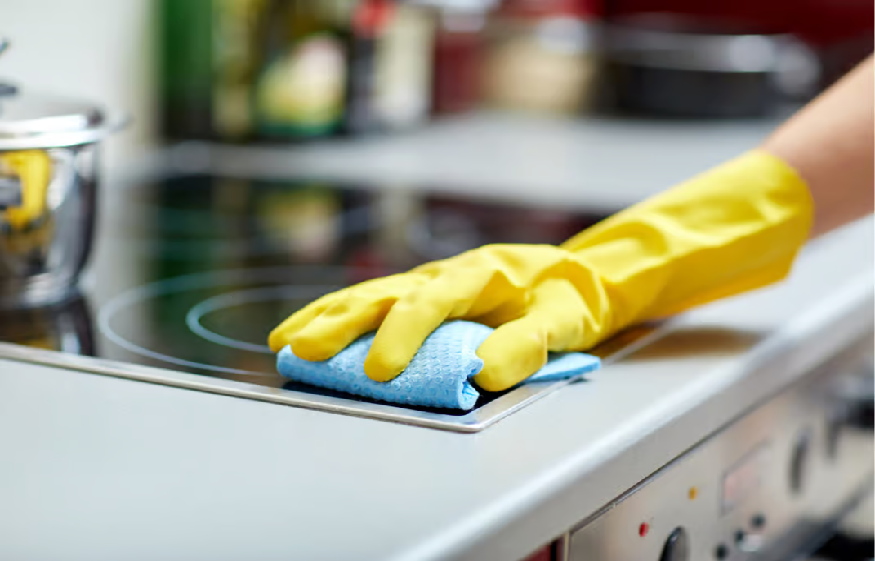
How HVAC Systems Contribute to Home Hygiene and Indoor Health
Biological pollutants, combustion products, and other contaminants significantly affect the health of occupants and comfort in homes and commercial spaces. Well-maintained HVAC systems improve air freshness by reducing allergens, chemicals, and harmful particles. The article explores key ways HVAC systems create a cleaner, more accommodating indoor environment.
1. Boosts Indoor Air Quality
HVAC functionalities collectively enhance air quality through advanced filtration, optimized ventilation, and humidity management. High-efficiency filters like HEPA capture minute particles and microscopic bacteria and viruses, reducing allergy and asthma triggers.
You can partner with reputable Duct Cleaners near me for comprehensive tune-ups, filter replacements, duct optimization, and addressing moisture issues, such as fixing leaks. Such efforts improve respiratory health, reduce health risks from airborne contaminants, and create a more comfortable, productive environment.
2. Enhanced Microbial Control
A faulty HVAC can enhance conducive microbial growth. For example, condensation beyond normal range due to poor ventilation, dirty filters, or clogged condensate drain lines can promote bacteria and fungi proliferation. Also, inadequate airflow can cause the accumulation of organic matter, which further nourishes these microorganisms.
High humidity due to a malfunctioning dehumidifier or clogged condensate drain can worsen the situation, encouraging the growth of harmful microscopic substances on HVAC components and walls, ceilings, and other building materials.
Also, insufficient airflow due to congested ducts or an underperforming blower fan allows contaminants to settle and multiply. Hence, HVAC system maintenance is crucial to keeping a space free from harmful microbes.
3. Enhanced Food Safety
Most refrigerators operate best in temperatures between 60 and 80 degrees Fahrenheit. For example, below 32oF, oil in the compressor can thicken and stop circulating. In contrast, room temperatures above 110oF can cause the condenser oil to overheat and break down, making it crucial to regulate indoor temperature for proper food refrigeration.
Also, a malfunctioning HVAC can increase the risk of food contamination due to increased airborne particles. That can result in foodborne illnesses. Therefore, proper HVAC functioning is crucial to ensure efficient refrigeration and a cleaner, safer environment for food storage, keeping airborne pollutants at bay and helping maintain optimal food hygiene.
4. Enhanced Housekeeping
HVAC systems have become integral to housekeeping by reducing the time and effort to maintain a clean home. One of the primary contributions is less dust accumulation, which can quickly settle on surfaces. Advanced HVAC filters capture airborne dust, pollen, pet dander, and other particles. That enhances optimal surface hygiene and improves overall air circulation, making it easier to clean the home.
HVAC systems also help improve humidity control and help prevent microbes growth by removing excess moisture, particularly in damp areas, further easing cleaning efforts. Also, using high-rated filters promotes a cleaner, more hygienic home, thus enhancing comfort and improving productivity within the home. The result is a more pleasant and comfortable living experience, as a well-maintained HVAC system helps reduce the burden of daily housekeeping tasks.
5. Effective Pest Management
Optimized HVAC systems can play a surprising role in pest management within a home by reducing food sources and disrupting pest habitats. For example, efficient air filtration captures dust, pet dander, and debris that serve as food for pests like dust mites and cockroaches. Also, by controlling humidity levels and preventing mold growth, HVAC systems eliminate another key food source for many pests.
Further, proper airflow and stable temperature conditions create an environment less hospitable for pests. However, ensuring well-sealed ductwork, vent covers with small mesh openings, and tightening entry points like doors and windows and air leaks is crucial in preventing pests from entering the home through the HVAC system or other openings. These combined actions significantly reduce pest populations, improve air freshness, and create a more comfortable living environment.
In conclusion, an HVAC system is critical in enhancing indoor hygiene, from maintaining cleaner surfaces to ensuring food safety and air quality. Its role in controlling dust, allergens, temperature, and humidity creates a healthier environment. However, it is vital to prioritize proper installation and maintenance by a reputable HVAC company for optimal performance at affordable rates, maximizing the system’s benefits.


